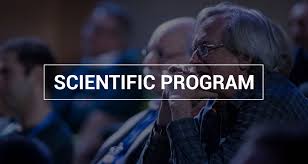
Hala Mohamed Bayoumy,
Assistant Professor
Title: Investigating knowledge, attitude and beliefs regarding placebo interventions in clinical practice: A comparative study of nursing and medical university students
Biography
Biography: Hala Mohamed Bayoumy,
Abstract
Background: Placebo interventions have been shown to be effective in alleviating symptoms of illnesses and therefore are commonly used in medical practice. Despite that, placebo is considered a pseudo-medication and therefore its use is debatable ethically, professionally and legally. There is also a lack of understanding of placebo among health profession students as a matter of lack education about placebos. Further, no previous studies have been conducted to investigate whether future nurses and physicians differ in their knowledge, attitudes or beliefs regarding placebo.
Methods: A comparative cross sectional study was carried out for exploring knowledge, attitude and beliefs about placebo interventions among a convenient sample of 191 medical and nursing students at King Saud bin Abdulaziz University for Health Sciences, Jeddah. Two instruments were utilized for data collection, including sociodemographic data sheet and a 32-item placebo knowledge, beliefs and attitude scale which was developed from the evidence-based literature. Validity and reliability was ensured through utilizing a nursing panel of experts and internal consistency analysis.
Results: Overall mean knowledge score was 7.68 ±2.07. Nursing students showed significantly higher knowledge than medical students (p=0.028). More nursing than medical students believed in the effectiveness of placebo (pË‚0.001). Medical students had a stronger belief that placebo effect is mental while nursing students believed it is both mental and physiologic (pË‚0.006). They also agreed that placebo intervention involves deception. Concerning placebo attitude, medical students significantly pointed that it should be prohibited but also significantly permitted if research supports its use (pË‚0.001).
Conclusion: Current study findings offered a unique opportunity first to better study the misunderstanding of placebos which might open the gate for misuse and might place the patient at risk of deception. Second exploring knowledge, attitudes and beliefs of future health care providers was imperative as relevant evidence based recommendation for nursing and medical educators could be achieved.
Keywords: Placebo Interventions, Clinical Practice, Knowledge, Attitude, Beliefs, Nurses, Physician, Students.

